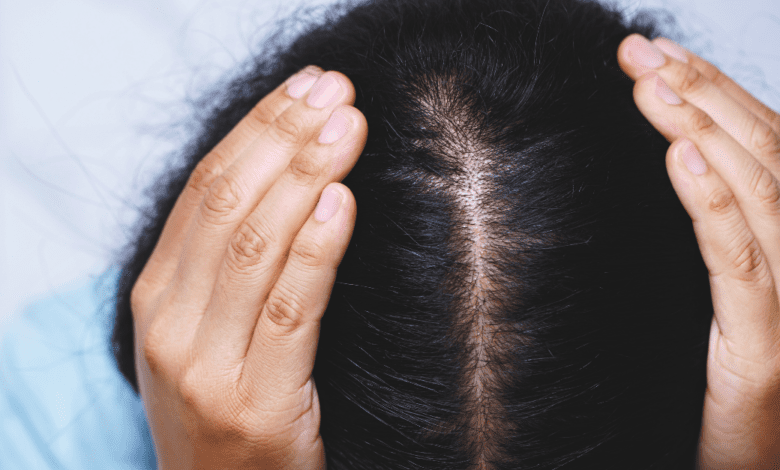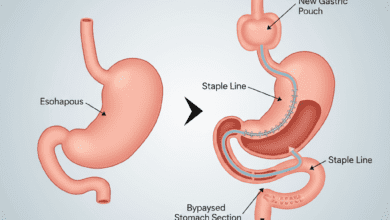Can Weight Loss Reverse Hair Loss Caused by Obesity?

Hair loss is a widespread concern that can affect self-esteem and quality of life. While genetics, aging, and hormonal shifts are well-known contributors, obesity has emerged as another important factor influencing hair health. Many individuals experiencing both obesity and hair loss wonder if shedding excess weight could also help restore hair growth. This guide explores the connection between obesity and hair health, and whether losing weight can actually reverse hair thinning.
The Connection Between Obesity and Hair Loss
Obesity impacts nearly every system in the body—and hair follicles are no exception. Increased body fat is often associated with systemic inflammation, insulin resistance, and hormonal imbalances, all of which can contribute to hair loss. One of the most common types of hair loss linked to obesity is telogen effluvium, a condition in which hair prematurely enters the resting (telogen) phase and falls out.
Hormonal imbalance is a key factor. Higher levels of androgens—male hormones present in both sexes—are common in individuals with obesity and can shrink hair follicles, reducing hair density. Additionally, poor blood circulation can limit the delivery of essential nutrients and oxygen to the scalp, weakening the hair shaft and root.
Can Weight Loss Help Restore Hair Growth?
There is growing evidence suggesting that weight loss can positively affect the health of your hair. By addressing some of the underlying causes of hair loss, weight reduction may help halt further shedding and encourage regrowth in certain cases.
When someone experiences weight loss, especially through a balanced, nutrient-rich diet, they often experience improvements in hormone regulation and reduced inflammation. These shifts can create a more favorable environment for hair growth. Moreover, improved circulation helps nourish the scalp, which may stimulate dormant follicles to resume the growth cycle.
However, hair recovery after weight loss is not immediate. It may take several months for visible changes to occur, depending on the degree of hair thinning and the health of individual follicles.
Understanding Hair Loss During and After Weight Loss
It’s important to recognize that rapid or extreme weight loss can actually trigger hair loss in some individuals. Crash diets, fasting, and sudden calorie deficits may shock the body into a stress response, leading to telogen effluvium. This type of hair loss is temporary, and hair usually regrows once the body stabilizes nutritionally and hormonally.
Therefore, gradual and sustainable weight loss is key. A well-balanced diet that includes sufficient protein, iron, zinc, biotin, and vitamins A, D, and E can support both healthy weight management and optimal hair function.
Incorporating Hair Loss Treatment Into Recovery
For those who continue to experience hair loss even after weight stabilization, medical hair loss treatment options can help enhance regrowth. Topical minoxidil is widely used to extend the growth phase of the hair cycle, while oral medications like finasteride may be recommended in certain cases, especially in men with androgenetic alopecia.
Other non-invasive treatments include platelet-rich plasma (PRP) therapy and low-level laser therapy, which can stimulate follicles and improve hair density. These treatments are often more effective when underlying factors like obesity and poor nutrition are being addressed simultaneously.
Combining hair loss treatment with a lifestyle that includes regular exercise, a whole-food diet, and stress management can produce the best outcomes.
Setting Realistic Expectations
Not all cases of hair loss can be fully reversed with weight loss alone. For individuals with a genetic predisposition or long-standing follicle miniaturization, hair regrowth may be limited. However, for those whose hair loss is driven largely by hormonal or metabolic imbalances related to obesity, shedding pounds can significantly slow or even reverse the process.
Everyone’s hair journey is different. It’s important to consult a dermatologist or trichologist to determine the underlying cause of your hair concerns and to find the most appropriate hair loss treatment plan.
While there is no one-size-fits-all answer, weight loss can play a powerful role in restoring hair health for individuals affected by obesity. By improving hormone levels, reducing inflammation, and enhancing nutrient delivery to the scalp, weight management can support natural hair regrowth. When combined with targeted hair loss treatment, the path toward healthier, fuller hair becomes even more attainable.





